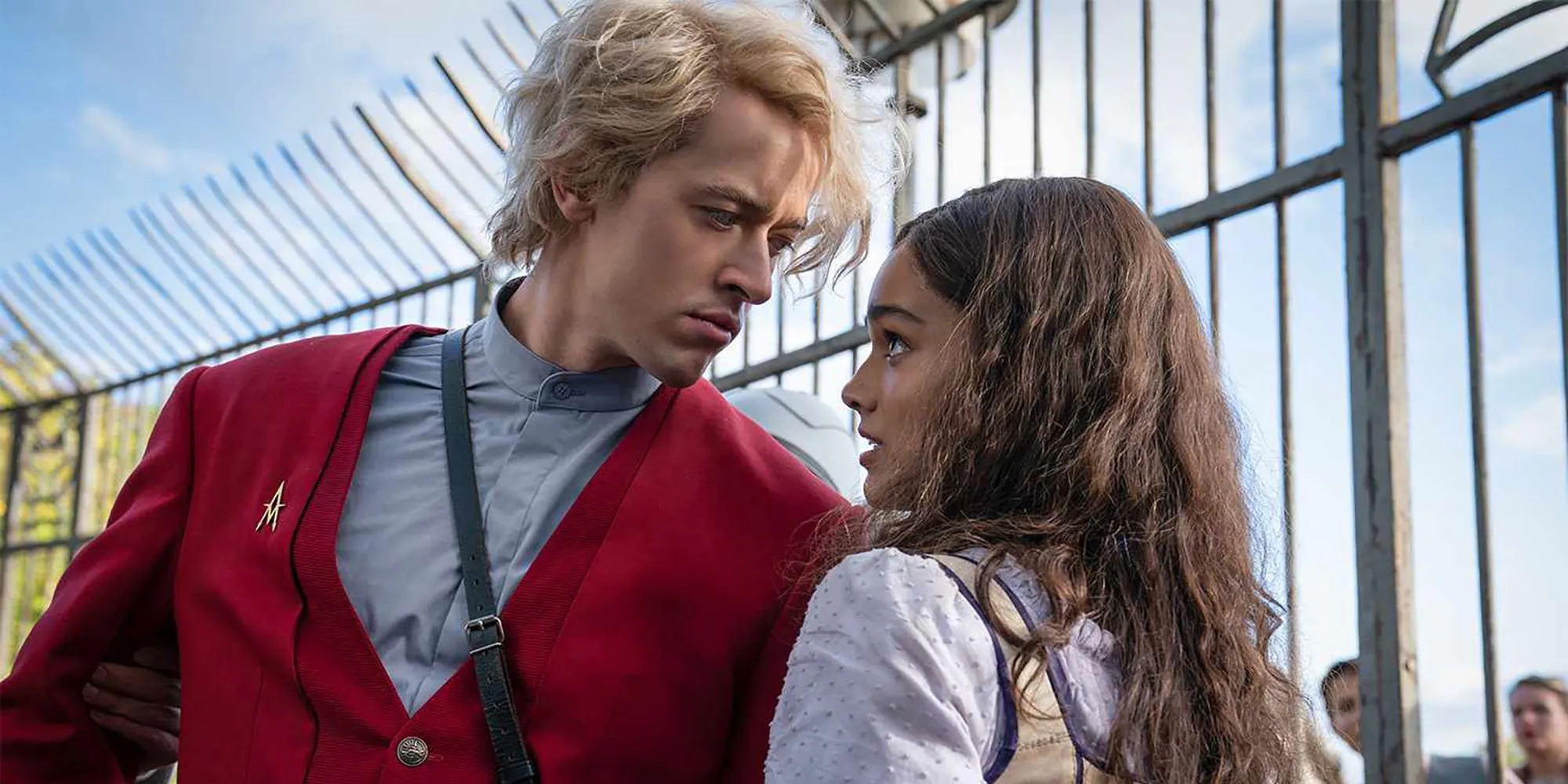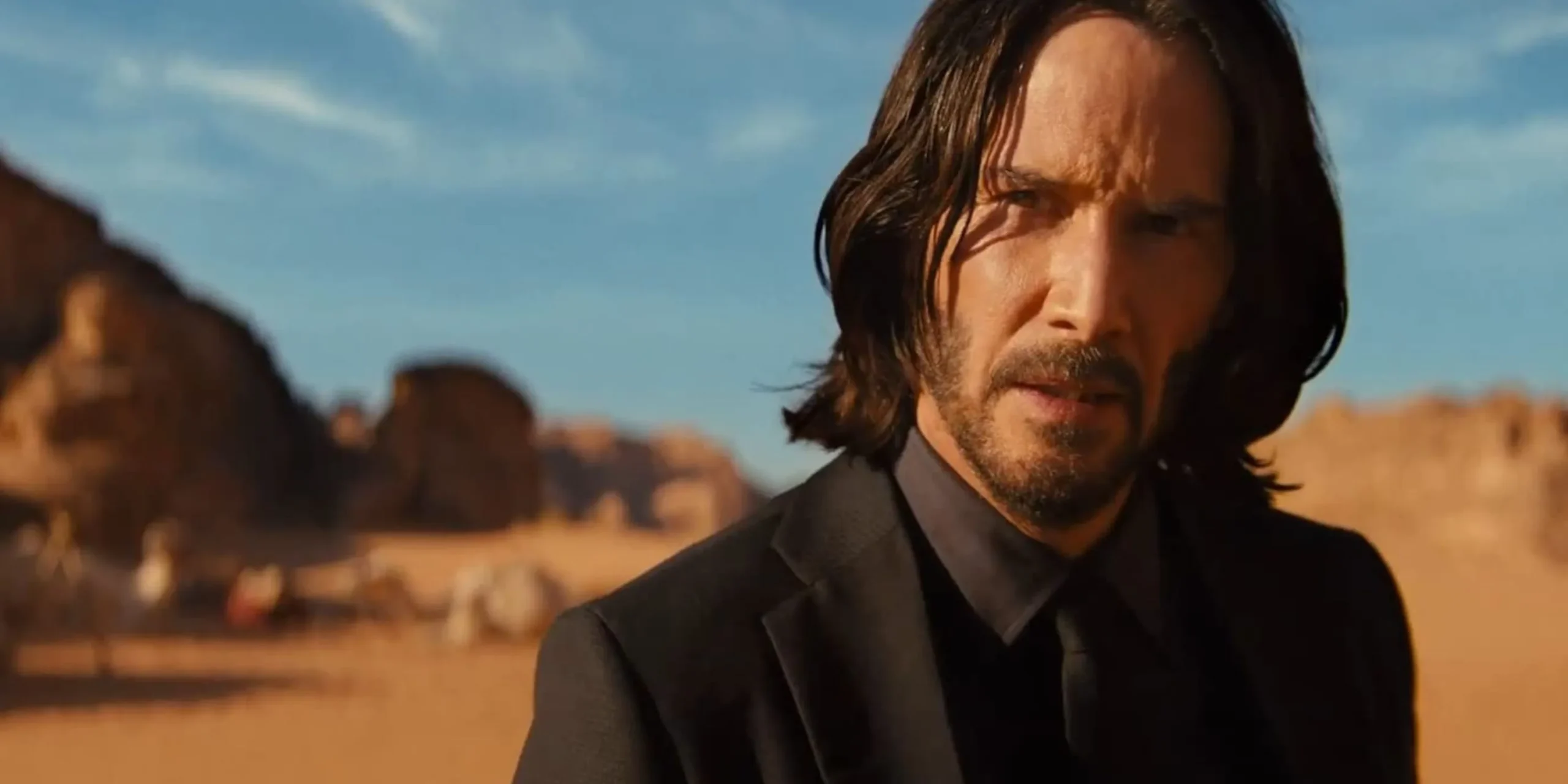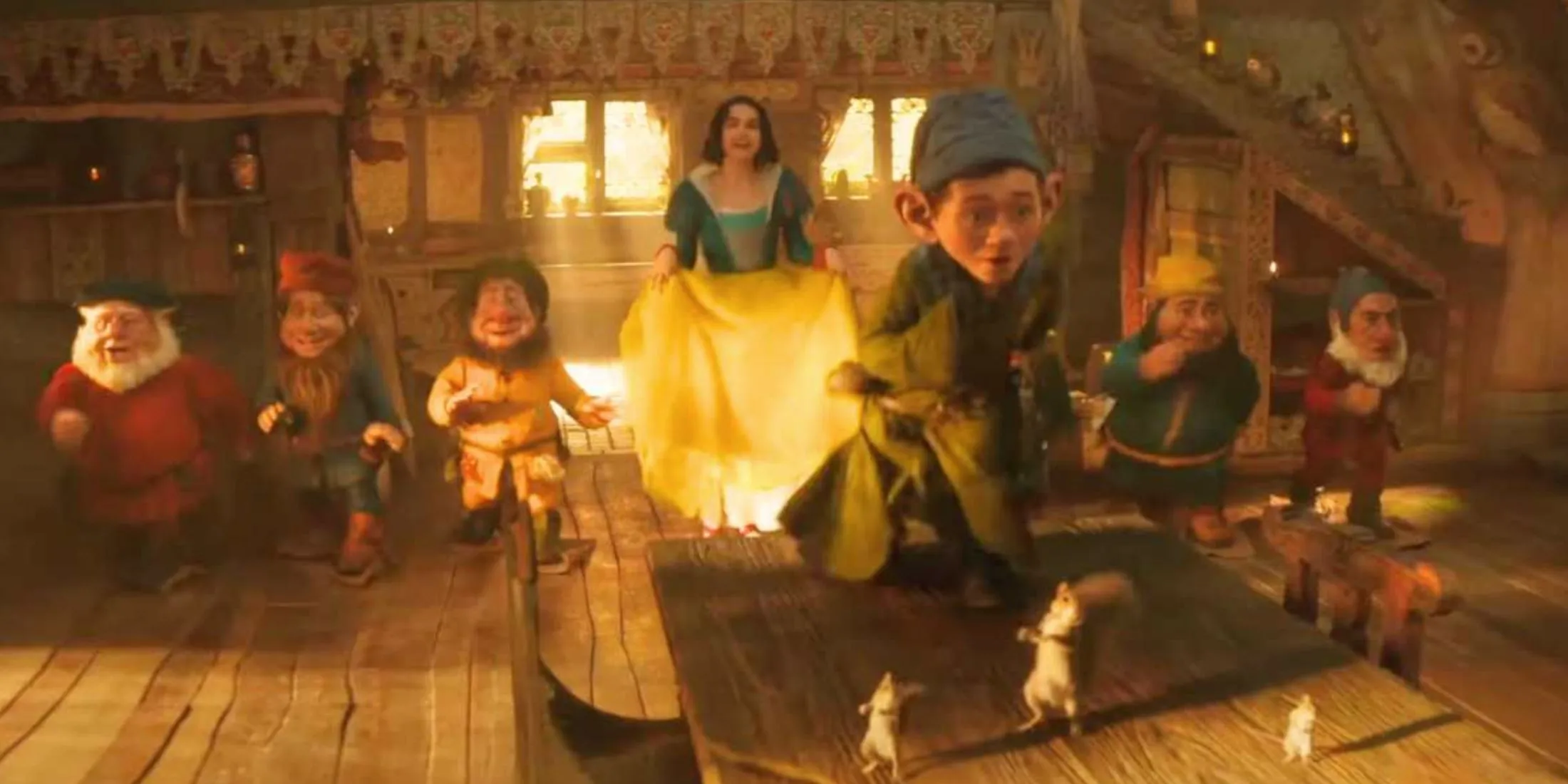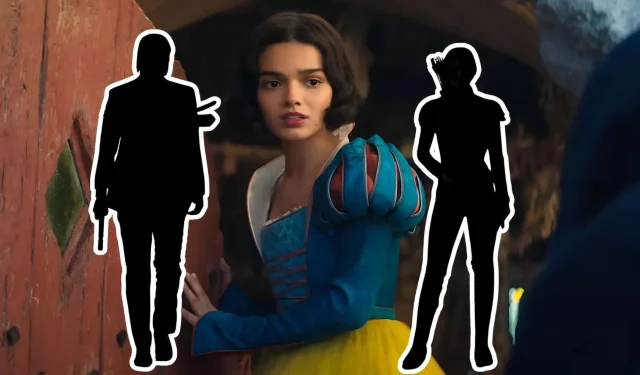Overview
- Lionsgate effectively capitalizes on its strategic planning for The Hunger Games franchise, contrasting sharply with Disney’s struggle to deliver compelling remakes and sequels.
- The Hunger Games and John Wick series excel in maintaining high-quality narrative and audience interest, distinguishing them in the crowded film market.
- John Wick 5 is confirmed with Keanu Reeves set to reprise his role, following the successful and action-packed John Wick 4 which surpassed box office expectations.
Lionsgate is boldly advancing its powerful franchises, launching The Hunger Games: Sunrise on the Reaping alongside John Wick: Chapter 5. In stark contrast, Disney faces significant challenges, notably with its recent “live-action” adaptation of Snow White, headlined by Rachel Zegler. While Lionsgate meticulously strategizes its next blockbuster, Disney’s approach seems haphazard, as if they’re simply hoping for success without substantial effort.
The Hunger Games and John Wick consistently demonstrate an impressive stability that many franchises struggle to achieve. Each new release aligns perfectly with audience expectations, never straying from the core elements that resonated with viewers initially. In contrast, Disney seems to churn out a series of uninspired remakes and unnecessary sequels, exemplifying a lack of originality and connection to their beloved stories. This disparity in strategic direction between the two studios is becoming increasingly evident, placing Disney in a difficult position to regain momentum.
The Hunger Games: Sunrise on the Reaping – A Promising Addition to Panem

The prequel The Hunger Games: The Ballad of Songbirds and Snakes, also featuring Zegler, has reaffirmed the audience’s appetite for dystopian narratives. Lionsgate is now set to adapt Suzanne Collins’ upcoming installment: Sunrise on the Reaping, which delves into the events 24 years prior to Katniss Everdeen’s first Hunger Games. This new film will center on the 50th Hunger Games, marking a critical moment known as the second Quarter Quell, showcasing Haymitch Abernathy’s defiance against the Capitol.
What differentiates Lionsgate from its competitors is its patience in developing franchise material. Rather than rushing sequels, Lionsgate allowed the narrative space to breathe following Mockingjay Part 2 in 2015, opting to wait for Collins to produce new content, ensuring any further entries would be rich with the storytelling depth that propelled The Hunger Games’ initial success. The Ballad of Songbirds and Snakes launched in 2023, satisfying a longstanding audience yearning for more adventures in Panem. It grossed over $337 million globally, against a budget of $100 million, and was well-received critically, underscoring the continued investment of fans in a well-crafted narrative.
The strength of The Hunger Games franchise lies in its well-developed characters and their navigation through a world rife with violence and political intrigue. The narrative transcends merely showcasing brutal competitions, offering a poignant critique of power dynamics, media influence, and rebellion. Had Lionsgate hurriedly churned out content for profit, it risked undermining these significant themes, diminishing what was once a thoughtful saga into a mere action series. By allowing Collins the time to inform the story’s direction, the studio has maintained the franchise’s importance and relevance.
Anticipation is already building for Sunrise on the Reaping, spurring discussions online about casting choices, the unfolding of the second Quarter Quell, and expansions of Panem’s intricate background. If past performance is any indication, this next installment is likely to soar as another success for Lionsgate.
John Wick 5—Keanu Reeves Returns

Despite the conclusion of John Wick: Chapter 4 appearing to finalize Baba Yaga’s narrative—with a scene featuring his gravestone—Lionsgate is progressing with plans for John Wick 5. This franchise continues to resonate powerfully at the box office, as audiences are enamored with Keanu Reeves embodying his role as the deadly assassin, brilliantly combining style with action.
The John Wick saga excels in providing what audiences crave: stylish, energetic action with minimal heavy-handed messaging. It’s a seamless blend of dynamic combat choreography and immersive visual effects, devoid of the rushed feel that plagues some recent films. In stark contrast to certain Marvel films (like Thor: Love and Thunder, Eternals, and Ant-Man and the Wasp: Quantumania), which have faced criticism for subpar CGI and lackluster scripts, the John Wick franchise prides itself on delivering high-quality, meticulously crafted entertainment.
Reeves’ commitment to authenticity plays a significant role in the franchise’s triumph. His intense training and dedication to realism enhances every action sequence, making each fight feel grounded and sincere. Observers have noted the parallels between Reeves’ portrayal and Tom Cruise’s approach in the Mission: Impossible series, indicating a successful strategy.
John Wick 4 achieved an impressive $432 million in global box office receipts, showcasing that audiences remain invested in this gripping world of assassins and high-paced revenge. Each film has consistently surpassed financial expectations, with John Wick 3 earning $327 million and Chapter 2 pulling in $171 million. The series continues to expand its complex underworld while keeping the audience enthralled. Therefore, John Wick 5 is anticipated to be another blockbuster.
Additionally, the upcoming spinoff film Ballerina, featuring Ana de Armas, is set to premiere in June 2025, although its potential success is viewed with caution.
Snow White and Disney’s Struggles

As for Disney, the media giant is facing criticism for becoming a factory of uninspired content marked by abrupt, uninspired productions. Largely perceived as diluting its once-storied legacy, Disney’s strategy to acquire established intellectual properties and subsequently churn out poorly executed remakes and endless sequels has prioritized volume over quality. This approach has resulted in audience fatigue and decreasing box office success. Iconic franchises like Marvel, Star Wars, and Indiana Jones have all experienced the negative repercussions of this relentless mediocrity, leading to multiple disappointing releases.
The live-action adaptation of Snow White debuted on March 21, unfolding with an underwhelming performance at the box office. With a mere $87.3 million opening against a whopping $250 million budget, the film faltered amid controversies surrounding CGI portrayals of dwarfs and criticisms directed at both Zegler and her co-star Gal Gadot. Critics lambasted the film for script choices that seemed disconnected from the original’s magic, compelling audiences to choose staying home over watching it.
Disney’s Other Struggles at the Box Office
Marvel Franchise Insights
- Captain America: Brave New World (2025) – Disappointment with an $180 million budget and a mere $88.5 million domestic opening, combined with lukewarm reviews and a staggering 68% drop in its second weekend.
- The Marvels (2023) – Considered a flop, the film, produced at $220 million, opened to just $46 million domestically and garnered a global total of $206 million, hindered by franchise fatigue.
- Ant-Man and the Wasp: Quantumania (2023) – This film, with a $200 million budget, barely broke even with net profits of $88,000, suffering from poor CGI and a dull storyline.
Challenges with Live-Action Remakes
- Snow White (2025) – Marked as a significant flop, opening with $87 million globally against a budget of approximately $250 million, heavily impacted by various controversies.
- Mufasa: The Lion King (2024) – Opening weakly at $35.4 million with mixed reviews and a $275 million budget, the film later grossed $721 million over time, but its initial performance was discouraging.
Star Wars Franchise Content Issues
- The Acolyte (2024) – Canceled, reflecting ongoing struggles for Disney in producing fresh Star Wars content.
Pixar’s Recent Predicaments
- Elemental (2023) – Facing disappointment with a $200 million budget and $29.6 million domestic opening, it marked Pixar’s lowest debut before experiencing a mild recovery.
- Lightyear (2022) – Another setback, with opening figures of $50.6 million against a production budget of around $200 million and a total revenue of only $226 million worldwide, unable to cover marketing costs.
Indiana Jones Franchise Flop
- Indiana Jones and the Dial of Destiny (2023) – A major disappointment, with an estimated budget of $294.7 million and a domestic opening of only $60 million, leading to substantial losses for Disney.
Despite these setbacks, it’s essential to recognize that Disney has seen some recent successes, including Pixar’s Inside Out 2 becoming the highest-grossing animated film. The recent Deadpool & Wolverine film has shattered R-rated box office records. Moreover, some franchises, like Star Wars, have noticeably slowed in output quality. The new trailer for Thunderbolts, which adopts a more edgy and artsy approach, may indicate Disney is finally responding to audience demands for innovation. However, the real question remains whether Disney can pivot its strategy to emulate Lionsgate’s successful approach and regain its footing in the industry.


